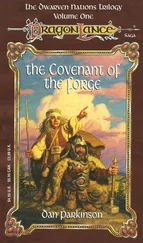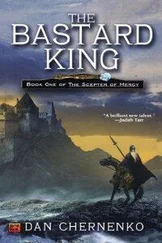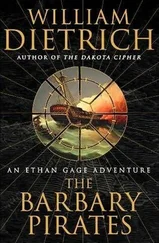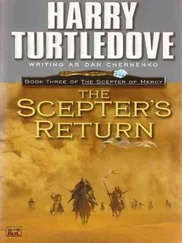Two Chernagors and an Avornan lay dead in a great pool of blood in front of the top of the ladder. More bodies came into view through the fog as Grus walked along the wall. All the Chernagors he saw were dead. Some Avornans were only wounded. One or two of them gave him feeble cheers.
His guards were as nervous as a mother watching a child take its first steps. “Be careful, Your Majesty!” they said, and, “Look out, Your Majesty!” and any number of things intended to keep the king away from the fighting.
“I do want to see what’s going on, as best I can with the fog,” he said.
They didn’t want to listen to him. He hadn’t really thought they would. Somewhere not far away, iron beat on iron—the Chernagors were still trying to hold off the Avornans and even to drive them back. Grus’ bodyguards got between him and the sound of fighting, as though the ring of sword against sword were as deadly as point or edge.
In spite of the guardsmen, Grus saw a good deal. By now, long stretches of the walls were in Avornan hands. The only Chernagors left in these parts were dead, wounded, or disarmed and taken prisoner. The captives had the stunned look of men for whom disaster had come from out of the blue—or, here, out of the gray. One moment, they’d felt secure enough on the works that had held out for so long. The next, they saw their comrades bleeding while they themselves faced an uncertain fate. No wonder they looked as though they’d just, and just barely, survived an earthquake.
And, as the day advanced toward midmorning, the sun finally began to thin the fog—not to burn it off, but at least to thin it to the point where Grus could see farther than his own knees. He got his first real look inside Nishevatz. Most of the buildings had plastered fronts painted in various bright colors and steeply pitched slate roofs to shed the winter snow.
Parties of Avornans and Chernagors ran through the narrow, muddy streets, pausing every so often to exchange sword strokes or shoot arrows. Grus watched a shrieking Chernagor go down, beset by two Avornans who thrust their blades into him again and again until at last he stopped moving. It took a sickeningly long time.
One of the guardsmen pointed deeper into the city than Grus had been looking. “See, Your Majesty?” the guard said in pleased tones. “There’s the first fire. Now they’ll have to worry about putting that out along with fighting us.”
“So they will,” Grus agreed. This was what he’d been trying to accomplish for years. Now that he’d finally done it, he was reminded of the cost. His soldiers and Vasilko’s weren’t the only actors in the drama. Old men hobbled on sticks, trying to escape both foes and flames. Women and children ran screaming through the streets, fearing what fate had in store for them—and well they might.
A Chernagor archer saw Grus peering down from the wall. The man set an arrow to his bowstring and let fly. The shaft hissed past the king’s face. Before the Chernagor could shoot again, Grus’ guards pulled him back from the edge of the wall. “You see, Your Majesty?” one of them said. “It’s not safe up here.”
“Not safe anywhere,” Grus answered. He shook off the guards and peered into Nishevatz again. “I wonder where Vasilko is and what he’s doing.”
“Quaking in his boots, most likely,” a guardsman said. “This place is going to fall now, and he’s got to know it.” As though to prove his point, what had to be a regiment’s worth of Avornans surged out from the wall, driving the Chernagor who’d shot at Grus and his comrades back toward the center of Nishevatz.
Another guard said, “They’re shouting your name, Your Majesty,”
“I hear them,” Grus said. When he first wore the crown, hearing soldiers use his name as a battle cry had been thrilling. Now it was just something that happened. I’m getting old — or older, anyhow, he thought.
He also heard shouts of “Vasilko!” He wondered whether Vsevolod’s son still enjoyed hearing soldiers shouting his name. With a little luck, that wouldn’t matter much longer.
“Where can we get into the city from the wall?” Grus asked his guardsmen. That made them look unhappy all over again, but they couldn’t very well pretend they hadn’t heard him, however much they might have wanted to. Instead, they fussed all the way to a staircase and all the way down. Even after Grus came down inside Nishevatz, his bodyguards still grumbled and fumed.
Avornan soldiers with spears led out long columns of Chernagor prisoners—grim-faced men who tramped along with empty hands raised high over their heads or tied behind their backs. Somewhere not far away, women wailed. Grus winced, knowing they were all too likely to have reason to wail. His own men were only… men, a lot of them no better than they had to be.
“Where is the prince’s palace?” he asked. “Chances are, that’s where Vasilko will make his stand.” He stopped and snapped his fingers. “Wait—I have a map of the town as it was, anyhow.” Maybe Lanius’ gift would do him some good after all.
A captain said, “I don’t know if we can get anywhere in Nishevatz very easily. Do you see? The fire is starting to take hold.”
So it was. Grus wondered if anyone in Nishevatz would ever see clearly again. Even as the fog thinned and the sun struggled to break through, thick clouds of black smoke began filling the streets of the city. A building fell down with a rending crash. New flames leaped up from the ruins. How long before most of Nishevatz was gutted? If it was, would Beloyuz thank him? He doubted that. If Beloyuz proved like most princes, he would stay grateful until Vasilko was dead or captive, and not much longer.
Grus suddenly stared. Was that part of the fire coming his way through the smoke and fog all on its own? A moment later, he realized it was Pterocles, whose hands still glowed brightly. “You can take off your spell now,” the king called.
The wizard looked down at himself. “Oh,” he said sheepishly. “I forgot all about that.” He muttered in a low voice. His hands once more became no more than ordinary flesh and blood.
“Can you lead me past the worst of the fires to Vasilkos stronghold?” Grus asked.
“If someone will tell me where Vasilkos stronghold is, I’ll try to take you there,” Pterocles answered.
That proved more complicated than Grus had expected. None of the Avornans nearby had been inside Nishevatz until that morning. None of the Chernagor captives seemed willing to understand Avornan. At last, the Avornans rounded up a noble named Pozvizd, who had escaped with Vsevolod and Beloyuz. He understood Avornan—after a fashion. “Yes, I take you,” he said, and started off at a brisk pace. Grus, Pterocles, and a host of guardsmen followed in his wake.
If he’d known just where he was going, all would have been well. But he promptly got lost. Smoke and fire confused him. No doubt, so did being away from Nishevatz for several years. And when he did know the way for a brief stretch, he often couldn’t use what he knew because of battling Chernagors and Avornans.
“We get there,” he said over his shoulder. “Soon or late, we get there.”
“Huzzah,” Grus said. “If we can, I’d like to get there before everyone involved in the fighting dies of old age.”
Several of his guards grinned. Pterocles giggled, which was most unprofessional of him. And Pozvizd either hadn’t heard all of that or didn’t understand all of it, for he just kept smiling back over his shoulder and saying, “We get there. Yes, we get there soon.”
And after a while—not soon enough to suit Grus, but not quite slowly enough to drive him altogether mad—they did get there. Most of Nishevatz had its own look, different from anything Grus would have seen in Avornis. When he came to Vasilkos stronghold, though, he felt a distinct shock of recognition. This building, plainly, had begun life as an Avornan noble’s home. The lines were unmistakable, undeniable—and it was right where the map Lanius had given him said the city governor’s residence should be. But, just as plainly, it had been serving different needs for a long, long time.
Читать дальше











